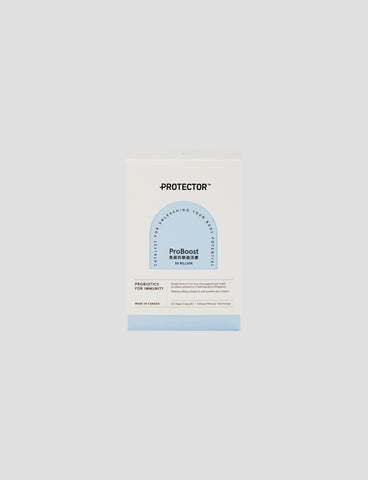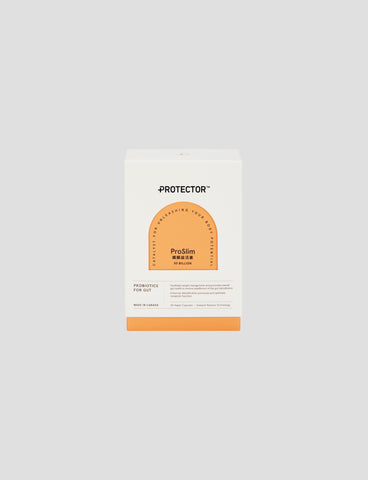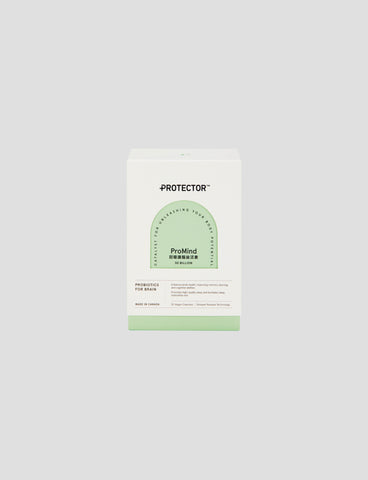Probiotics have emerged as one of the hottest trends in the health and wellness space, promising an array of benefits for our body’s complex ecosystem. Their broad impact on human health ranges from supporting digestion to strengthening the immune system, showcasing their potential in enhancing overall wellness and combating various health issues. But with an explosion of probiotic supplements flooding the market, choosing the right one for you is similar to solving a puzzle with myriad pieces.
In this comprehensive guide, we will break down the intricacies of probiotics, helping you make informed decisions that align with your health goals. Whether you’re a seasoned health enthusiast or a first-time supplement shopper, understanding the nuances of probiotic selection and usage will empower you to harness their full potential.
Understanding Probiotics: What They Are and Their Health Benefits
Before we plunge into the myriad options at your disposal, it’s essential to grasp the fundamentals of what probiotics actually are. Probiotics, often referred to as ‘good bacteria,’ are live microorganisms that offer health benefits to the host. Recognized as beneficial microbes, these live cultures are not only pivotal for gut health but are present throughout the body, predominantly in the gastrointestinal tract, where they work to maintain a balance between beneficial and harmful bacteria.
Recent research highlights health benefits of probiotics and the critical importance of the microbiome, a community of microorganisms mainly in our gut, in maintaining our health. A balanced microbiome is linked to enhanced immune response function, better digestive health, balance in women’s health, and improved brain function.
-
Immune System: Probiotics are pivotal in fostering a balanced environment of beneficial bacteria within the digestive system, significantly aiding in digestion and the absorption of nutrients. This equilibrium fortifies the intestinal barrier, bolstering the immune system’s efficacy by providing a robust defense against malicious pathogens.
-
Digestive Health and Weight Management: Probiotics are essential in optimizing the digestion of food, absorption of essential nutrients, and in the regulation of appetite and energy levels, playing a vital role in maintaining a healthy digestive system and aiding in weight management.
-
Women’s Health: Probiotics play a crucial role in women’s health by promoting a healthy balance of good bacteria and yeast in the vaginal area. This balance is key to reducing the likelihood of urinary tract infections (UTIs) and vaginal infections, thereby supporting overall vaginal health.
-
Brain Health: The gut-brain axis (GBA) involves two-way communication between the brain and the digestive system. This connection ties together the brain’s emotional and cognitive centers with the digestive functions in the intestines.
Exploring the Diverse Sources of Probiotic
Probiotics can be derived from both food sources and supplements, with the latter serving as a convenient and efficient way for busy individuals to incorporate these beneficial bacteria into their diets.
-
Probiotic Foods: The most natural and traditional source of probiotics lies in our food. Fermented foods and drinks such as yogurt, kefir, sauerkraut, kimchi, miso, and kombucha are rich in beneficial bacteria. Lactic acid bacteria are the most commonly used probiotics in foods. Incorporating these probiotic-rich foods into your diet can be an excellent way to support your gut health.
-
Probiotic supplement: With the increasing popularity of probiotics, many manufacturers have created supplements in various forms, such as capsules, powders, and liquids. Supplemental probiotics offer a more concentrated dose of beneficial probiotic bacteria and can be an effective way to address specific health issues.
The Importance of Choosing the Right Probiotic Supplements
Not all probiotics are the same. A supplement that significantly benefits your friend's digestive health may not have the same effect on your own wellness issues. The unique composition of your microbiome, influenced by factors such as genetics, diet, lifestyle, and environment, means that personalized probiotic regimens are key. But what should you look for in a supplement to ensure it’s the right match for you?
There are several key considerations when evaluating a probiotic supplement, such as the diversity of strains, the number of colony-forming units (CFUs), the viability of strains through expiration, and the presence of prebiotics that feed probiotics' growth. More than just buzzwords, these factors directly impact a probiotic's ability to deliver on its promises.
Let's dive into the sometimes puzzling world of probiotics. We'll break down all the major points, cut through the complex terms, and give you the lowdown on how to navigate through the vast options out there.
Understanding Probiotic Strains and Their Benefits
One of the most critical elements in probiotic selection is the probiotic bacterial strain. Different strains offer distinct health advantages, so it’s important to choose a supplement with strains tailored to your health needs. Here’s a brief overview of some specifically beneficial strains:
-
Lactobacillus Rhamnosus, LGG: The most clinically researched probiotic strain. It is known for its ability to survive stomach acid and bile, making it particularly effective in supporting the immune and digestive systems. LGG shows beneficial effects in maintaining digestive harmony and preventing the onset of antibiotic associated diarrhea.
-
Lactobacillus Plantarum: Studies highlight its potential in reducing body weight and fat, particularly when combined with diet and exercise. Additionally, L. plantarum can help decrease inflammation in the gut and improve overall digestive health.
-
Bifidobacterium Longum: Research indicates that Bifidobacterium Longum has been shown to improve behaviors related to anxiety and depression. This suggests it could positively affect mental health by influencing the gut-brain connection. Furthermore, it holds potential in managing gastrointestinal disorders such as ulcerative colitis (UC), inflammatory bowel disease (IBD), and irritable bowel syndrome (IBS), by restoring healthy gut microbiota and improving intestinal health.
-
Lactobacillus Acidophilus: Research shows Lactobacillus species, including Lactobacillus acidophilus, play a crucial role in women’s health by keeping the vaginal environment balanced and boosting immune defense. They prevent harmful pathogens from colonizing by sticking to the vaginal lining and protecting against gynecological diseases.
Factors to Consider in Choosing a Probiotic Supplement
In addition to the strains, it’s important to consider various other factors to ensure that the probiotic supplement, available in various forms including as dietary supplements, you select is truly effective:
Colony-Forming Units (CFUs)
Colony-Forming Units (CFUs) refer to the measurement used to estimate the number of viable bacterial cells present in a probiotic supplement. This metric is crucial because it signifies how many living, beneficial bacteria are consumed with a probiotic product.
Shelf Stability
Probiotics are living organisms and can be sensitive to environmental factors such as heat, light, and moisture. A high-quality probiotic supplement will have a proprietary delivery system that ensures the strains are viable when ingested and reach the intended site in the gut.
Added Nutrients and Prebiotics
Some probiotic supplements include additional ingredients like vitamins, minerals, and prebiotics—non-digestible fibers that promote the growth of beneficial bacteria in the gut. The combination can offer a synergistic effect, enhancing the probiotic's functionality.
Common Mistakes to Avoid When Selecting a Probiotic
Making an informed choice also means understanding what not to do. Here are some common mistakes you should steer clear of when selecting a probiotic:
Not Checking the Expiry Date
The efficacy of a probiotic supplement is directly related to the number of live CFUs it contains. Always check the expiry date and choose a product with at least a six-month shelf life to the date of expiry to ensure you're getting a viable product throughout the stated shelf life.
Ignoring Packaging Details
Storage and packaging play a crucial role in maintaining probiotic viability. Supplements should be contained in airtight, opaque packaging to protect them from moisture and light. Packaging that prevents air and light from entering also helps maintain potency.
How to Incorporate Probiotics into Your Daily Routine for Maximum Benefit
Once you've selected the right probiotic, it's time to integrate it into your daily routine. Consistency is key in realizing the benefits of probiotics, much like any other supplement. Here are some tips to ensure you're getting the most out of your probiotic regimen:
Time it Right
While there's no one-size-fits-all answer to the best time to take your probiotic supplement or fermented foods , many experts recommend taking it with food to facilitate its passage through the acidic stomach environment. It's particularly important for products with enteric coatings that protect strains until they reach the intestines.
Support with a Healthy Lifestyle
Probiotics are most effective when supported by a healthy diet and lifestyle. Eating a diverse range of foods, including plenty of high-fiber prebiotics, and minimizing stress contribute to a healthier gut environment where probiotics can flourish.
Consider Prolonged Use
For individuals with specific health conditions, prolonged use of a probiotic supplement may be beneficial. However, it's always best to follow the recommended guidelines and consult with a healthcare professional if you have concerns.
Protector is committed to bring you top-notch probiotic supplements:
Each supplement is developed with health benefits in mind, guaranteeing efficacy, safety, and alignment with your health needs, featuring key benefits as follows:
No.1 Clinically Proven Probiotic Strain:
Lactobacillus Rhamnosus, LGG, is the world’s most documented probiotic strain, supported by 2000+ medical journals and 250+ human clinical trials, demonstrating its effectiveness in restoring the balance of the microbiota.
Micro-encapsulation technology
With Micro-encapsulation technology, our delayed-release capsule and acid-resistant strains guarantee the majority of 50 Billion CFU* reaches the colon, alive and active.
Improves probiotics survival rate up to 97%**- Increase probiotics (CFU) delivery to colon by up to 12 times**
**Compared to generic non-enteric coated capsule
4+1 Symbiotic (Probiotic + Prebiotic) Formula
Prebiotics assist in promoting the growth of probiotics, enhancing microbial diversity and regulating bowel movements.
Made in Canada
Following World Health Organization, Good Manufacturing Practices and Health Canada regulation to keep manufacturing safe and up to standard.
Probiotic Supplements for Different Health Needs
We’re here to make your hunt for the perfect probiotic super smooth. Check out our hand-picked selection of probiotic supplements for all kinds of health needs:
For Immunity - Protector ProBoost 50 Billion
Formulated support a healthy immune system, balancing the intestinal microflora.
-
Bifidobacterium Adolescentis: Enhances immune cell metabolism, antibody production, post-illness recovery, and immune barrier strength.
-
Green Tea Extract and Vitamin C: Inhibits allergy-triggering agents and alleviates allergic reactions.
For Weight Management - Protector ProSlim 50 Billion
Formulated for gut health and weight management.
-
Lactobacillus Plantarum: Detoxifies and enhances metabolism. Promotes the breakdown of fat cells and the body's fat burning process to shape and tone the body.
-
Bromelain, Turmeric and Peppermint: Improves digestion and aids in the elimination of excess fat absorption, while providing relief from stomach gas, bloating, and constipation.
For Women's Health - Protector ProGlow 50 Billion
Formulated for optimal gut and feminine health.
-
Cranberry Extract: Promotes feminine health by inhibiting bacterial adhesion and restoring pH balance. Reduces symptoms such as itching, irritation, and odors.
-
Vitamins A, C, and Zinc: Supports immune function while also reducing inflammation.
For Brain Health - Protector ProMind 50 Billions
Formulated for brain and sleep health by optimizing the interaction of the "gut-brain axis" through scientific means.
-
Ashwagandha & L-theanine: Reduces cortisol levels, enhances concentration. Promotes neurotransmitter production, enhances memory, learning, and cognitive abilities.
-
Passion Flower & Multi-Vitamins B+D: Regulates mood and increases GABA effect, promoting relaxation and improving sleep quality, including deep sleep.
Achieving Balanced Well-being through the Right Probiotic Choice
In conclusion, the world of probiotics offers a vast potential for enhancing personal health, particularly in areas concerning digestion, immunity, mental health, and overall well-being. The key to unlocking these benefits lies in choosing a probiotic that not only meets the highest standards of quality and efficacy but also aligns with your specific health needs. Protector Probiotic collection stands out as a beacon of reliability and excellence, offering clinically proven strains, cutting-edge microencapsulation technology, and thoughtful formulations that cater to a wide array of health objectives. By incorporating the right probiotic into your daily routine and supporting it with a healthy lifestyle, you are taking a significant step towards nurturing your gut health—the foundation of a vibrant, healthy life. Remember to consult healthcare professionals for tailored advice, and here’s to a happier, healthier you.
References
-
Bodke, Harsh, and Sangita Jogdand. “Role of Probiotics in Human Health.” Cureus, vol. 14, no. 11, 9 Nov. 2022.
-
Segers, M. E., & Lebeer, S. (2014, August 29). Towards a better understanding of lactobacillus rhamnosus GG - host interactions - microbial cell factories. SpringerLink.
-
Sohn, M., Jung, H., Lee, W. S., Kim, T. H., & Lim, S. (2022). Effect of Lactobacillus plantarum LMT1-48 on Body Fat in Overweight Subjects: A Randomized, Double-Blind, Placebo-Controlled Trial. Diabetes & Metabolism Journal.
-
Pinto-Sanchez, Maria Ines, et al. “Probiotic Bifidobacterium Longum NCC3001 Reduces Depression Scores and Alters Brain Activity: A Pilot Study in Patients with Irritable Bowel Syndrome.” Gastroenterology, vol. 153, no. 2, 2017, pp. 448-459.e8.
-
Mei, Zhaojun, and Dandan Li. “The Role of Probiotics in Vaginal Health.” Frontiers in Cellular and Infection Microbiology, vol. 12, 28 July 2022.





